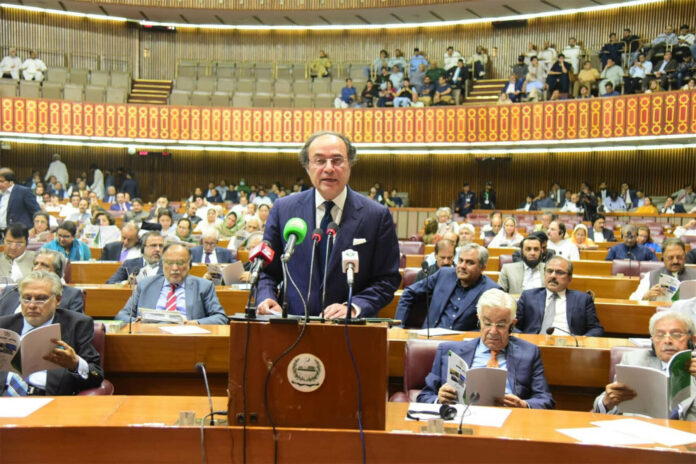Islamabad, June 12: The business community and traders representative bodies across Pakistan have spurned the new PKR 18.9 trillion federal budget for 2024-2025 presented in the National Assembly, terming it ‘anti-trader’.
The bill which was presented by the Finance Minister Muhammad Aurangzeb was apparently “in line” with the demands of the IMF, as per Pakistani analysts and contained measures as asked by the international money lender.
The All Pakistan Anjuman-e-Tajran, and chambers of commerce of different major cities including Karachi, Faisalabad, Sialkot and Rawalpindi have unanimously rejected the budget, with Ajmal Baloch, the President of All Pakistan Anjuman-e-Tajran, calling it a draconian bill.
He blasted the massive hike in taxation which has gone up to an all-time high of 45 percent as well as the additional 18 percent sales tax on mobile phones, while saying that the government has introduced no new measures to curb its needless expenses.
The trader’s organisation president also criticised the imposition of an 18 percent sales tax on leather goods, saying it will lead to a significant increase in shoe prices.
The budget was also criticised by members of the opposition, most notably by the Pakistan Tehreek-e-Insaf backed Sunni Ittehad Council.
The Pakistan government also proposed abolishing sales tax exemptions and concessions on various items including mobile phones, copper, coal, paper, and plastic scrap, with Federal Minister for Finance and Revenue Senator Muhammad Aurangzeb proposing a standard sales tax rate of 18 percent on various items.
Meanwhile, according to Finance Minister Aurangzeb, more than half of Pakistan’s total budget would go into interest payments.
Rs9,775 billion would go to interest payments, he said when he presented the important points of the annual budget. The budget deficit has been projected at 6.9 per cent of the gross domestic product.
Pakistan’s public debt, both domestic and foreign, has soared to Rs67,525 billion in the fiscal year, up Rs4,644 in the last fiscal year, according to the Pakistan Economic Survey report.
The reason for such an increase was the federal primary deficit (surplus) and interest on the debt.
Pakistan’s public debt surged by Rs67.5 trillion as of the end of March compared to the previous year as the country looked for avenues to support its economy.
On Tuesday, Aurangzeb said that repayment would not be a big issue for the next fiscal year.
“I do see some of the commercial bank borrowing coming in,” the finance minister said in response to a query at the press conference.
One of the graphs in the report showed that the total per cent of public debt to GDP stood at 75%.








